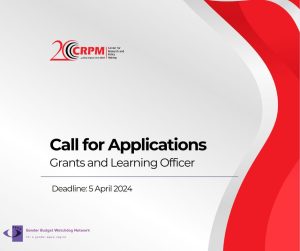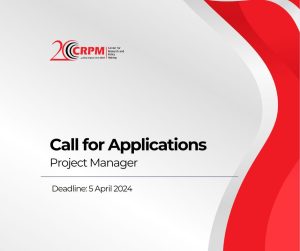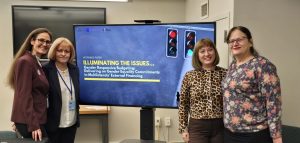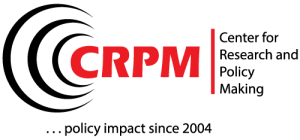REGIONAL ACADEMY FOR DEMOCRACY – SHAPING THE EUROPEAN FUTURE OF THE BALKANS – BUILDING A NEW POLITICAL CULTURE AND POLITICAL ELITE
The project reflects our effort to elevate our existing cooperation into an advanced Regional Academy for Democracy, with the most prominent leaders from each country taking part a series of capacity building events that reflect regional priorities in the areas still crucial for these relatively new and still fragile democracies.
The overall objective of the action is to contribute to regional cooperation in the Western Balkans in the fields of democracy, human rights, justice and institution building, through building the capacities of next-generation political leadership and their mutual understanding and cooperation.
The key stakeholders on the governmental and intergovernmental levels are national institutions (governments, parliaments, local self-governments) and regional bodies (primarily the EU-sponsored Regional Cooperation Council). A second set of stakeholders concerns political parties, while a third group consist of experts, academics, and leading civil society leaders whose work is geared towards policy-makers in the field of human rights, democracy, and justice.
Funded by: European instrument for democracy and human rights regional program and Vishegrad +
STRENGTHENING THE RECOM PROCESS
The overall objective of the project is to enhance respect for, and compliance with, human rights in post-Yugoslav states, through strengthening the RECOM process aimed at reaching a regional consensus about the past that is based on facts, and at advancing the process of reconciliation between different communities, groups and institutions, including civil society organisations, religious communities and political decision makers, which represent conflicting interests and views on issues related to wars in the Western Balkans in the 1990s.
Funded by: European instrument for democracy and human rights regional program and Rockefeller Brothers Fund
ADVOCACY FOR OPEN GOVERNMENT: CIVIL SOCIETY AGENDA-SETTING AND MONITORING OF COUNTRY ACTION PLANS
The objective is to increase transparency and integrity in government, enhance public participation and accountability, and generate more effective policymaking, eg. Public service delivery, and empower CSOs to monitor open government. The project will develop and apply a common methodology to advocate for, and monitor, standards in open government, good governance and rule of law in six countries in the Western Balkans (WB). The project will widen public debate about the efficiency and transparency of government, and train CSOs to monitor the impact of stated policies, including implementation of MDGs and post-2015 plans for MDGs in good governance, and advocate for reforms and effective implementation. The project will develop commitments for governments to make under the Open Government Partnership (OGP) Initiative, and in parallel prepare the ground for completion of chapters in line with the acquis for EU accession.
Funded by: DG Enlargement Civil Society facility and the Foreign Commonwealth Office
EXCHANGE OF EU BEST PRACTICES IN THE AREA OF ANTICORRUPTION MONITORING ON LOCAL LEVEL
The overall objective of the action is to foster anticorruption and good governance practices at local level that will enable sustainable environment for social, economic and environmental development.
Hence, increasing the capacities for anticorruption monitoring at local level among the citizens and the civil sector in particular is envisioned to be one of the main preconditions for achieving the general objective.
The activities are inspired from the Croatian experience in strengthening civil society to be active watchdog of the transparency and accountability principles of the local government and the notion that active and aware citizens are the basis for transparent and corruption-free government. For this purpose, the project consortium consists of 8 CSOs, each working in and representing one of the regions in the country. In addition, it includes other relevant stakeholders, such as the Unit of Local Self-governments and the national anticorruption bodies, which are of crucial importance when it comes to implementing more efficient transparency and accountability policies in the country.
Funded by: European Union IPA Component 1 TAIB
PROMOTING GOOD GOVERNANCE AND ECONOMIC RIGHTS THROUGH EMPOWERING MACEDONIAN CIVIL SOCIETY TO MONITOR AND TACKLE THE HIDDEN ECONOMY IN THE FYR OF MACEDONIA
Tacking the hidden economy in the FYR of Macedonia will address better current governance concerns in the country, and will take into consideration the top worries in society – employment and incomes. The proposed action on promoting good governance and economic rights through monitoring and tackling the hidden economy in the FYR of Macedonia is based on the principles of public-private partnership, CSOs collaboration and exchange of best practices. The methodology of the proposed project rests on the previous experience of the co-applicants, and in particular the Hidden Economy Monitoring System (HEMS), which the Center for the Study of Democracy (CSD) has been applying in Bulgaria since December 2003.
The strategy of the project sets as its overall objective the strengthening of the capacity of the civil society and the public institutions to develop and promote public economic policies in the area of hidden economy and corruption in FYR of Macedonia aimed at upholding democracy, economic rights and rule of law and at reducing ethnic, religious and class divisions, poverty and inequality.
Funded by: European Union Instrument for Democracy and Human Rights and BTD
STRENGTHENING THE ROLE OF NGOS IN THE PUBLIC DIALOGUE ON CLIMATE PROTECTION IN SOUTH EAST EUROPE
The main goal of the project is to build the capacities of non-governmental organisations in the 7 South East European target countries for participation in public policy dialogue on climate mitigation focusing particularly on energy efficiency as a tool for climate mitigation. The project will make use of this experience by training local NGOs on energy efficiency and climate mitigation aspects, facilitating contacts among themselves and offering networking opportunities with national policy makers. The project follows thus an innovative approach as it does not only focus on training or policy advice but rather on facilitating the necessary structure in each country so that a public dialogue and a continuous involvement of NGOs in policy discussions develop.
The project will build on a previous initiative called Public Dialogue Initiative (PDI, full name Public Dialogue on the Sustainable Use of Energy in South East Europe, www.publicdialogue-energy.com) which was on-going from 2010 until 2013. This initiative was highly successful with more than 50 thematic events across the 7 SEE countries covering energy efficiency policy implementation, climate change, policy process mechanisms and gathered hundreds of participants from all relevant sectors of society (NGOs, business sector, public sector, media). While the PDI has initiated dialogue processes, it showed that especial-ly environmental NGOs still have only limited access and little success in getting involved into such discussions.
Funded by: DBU, GIZ and KAS
INITIATIVE TO ENHANCE PUBLIC DIALOGUE ON SUSTAINABLE USE OF ENERGY
The project aims to create the ground and conditions for effective use of energy at local level through increased understanding and cooperation among local government units, business community, public and other relevant stakeholders. As well as to raise awareness and understanding on Energy Efficiency and climate change issues by promoting best practices and initiatives for action at local level with the involvement of all relevant stakeholders. The expected outputs of the project are:
1. Increased capacities of 4 municipalities (Korca, Pogradec, Bitola, Kicevo) and other local stakeholders on EE issues and across borders
2. Development of Platforms for Actions among local stakeholders and across borders
3. Established a long-term dialogue among all local stakeholders on EE issues and its implementation at local level
4. Increased awareness of all local stakeholders on EE issues and its implementation
Funded by: European Union IPA Cross Border Program between Macedonia and Albania and the Government of Republic of Macedonia
PROMOTING SOCIAL ACCOUNTABILITY ON LOCAL LEVEL
UNDP supports the development of innovative technological solutions for citizen’s participation and strengthening of their role as monitors of the work of the local government which may lead to promotion of integrity, improvement of quality of service delivery and decreasing corruption. To this end, in the framework of this project an innovative software application for social accountability will be developed and piloted in five municipalities: Tetovo, Bosilovo, Ilinden, Debar and Centar. The aim is to strengthen the interaction between the public institutions and citizens and promote good governance, policies and enhance quality of service delivery.
In parallel to the introduction of the software application the project will include an internship program for about 30 students or early graduates who will be trained in good governance with specific focus on transparency, accountability and participation. The interns will have an opportunity to work with the local self-government administration and assist the interaction between public institutions and citizens on good governance issues.
Funded by: UNDP
MILTON FRIEDMAN DAY
The project Milton Friedman Legacy for Freedom Day was implemented by the Center for Research and Policy Making in July 2014. This project which is implementing third year in a row was supported by the Friedman Foundation for Educational Choice http://www.edchoice.org/.
Friedman Legacy Day is one way of remembering Milton Friedman and the impact he and his ideas have had in the world. The Friedman Legacy Day was organized on 31 July, the date on what would have been Milton’s 102st birthday. The project team organized two events in Skopje and Bitola attended by students and guests interested in the Friedman Legacy. Several guest speakers and professors talked about the “Legacy of Milton Friedman in the politics”, “Monetary policy”, “Educational choice” and “Individual freedom”.
Topics and guest speakers in Bitola were:
“The legacy of Milton Friedman – an introduction” – Ass. Prof. Diogen Hadzi – Kosta Milevski, FAMIS, Bitola
“Individual freedom” – Nikola G. Petrovski, President of Students for Liberty, Macedonia
“Monetary Policy and the Legacy of Milton Friedman”- M-r Ana Dajovska, G.O. GET INOVACIJA, Bitola
Topics and guest speakers in Skopje were:
“The legacy of Milton Friedman – an introduction” – Jelena Petrovic, Democracy and Human Rights in South-East Europe (ERMA)
“Individual freedom” – Aleksandar Poposki, Pacific Institute for Research, USA
“The legacy of Milton Friedman for economics and politics” – Ass. Prof. Katerina Shapkova, Faculty of Law, Skopje
Funded by: Milton Friedman Foundation
PEOPLE AND MEMORIES TALK – REGIONAL EDITION
The project “People and Memories Talk – Regional Edition” consists in the collection of unique destinies and histories of victims from Bosnia and Herzegovina, Croatia, Kosovo, Serbia and Macedonia, in the format of narrative documentary films for serial broadcasting on television channels across the region.
Funded by: SDC
GENDER, CARE AND LABOR FORCE PARTICIPATION-MIXED METHODS STUDY
This mixed methods work will study women’s use of time, labor force participation, family and household responsibilities, and demand for care services. This study will have two parts:
a) A supply assessment of care services
b) Household and demand assessment including: Focus group discussions (FGDs) with women from a variety of perspectives (details below) and questionnaires completed by focus group respondents
The supply assessment will be a census-type study of the sites the focus group discussions target. It will investigate the types of child and elder care services available to households, both public and private, and explore their quality, cost, and accessibility, as well as the social perception and normative views around care and the use of the different available alternatives. The demand assessment will include both focus groups and individual questionnaires. The focus groups will include an exploration of time use and will also examine care needs of families with children, elderly, or sick household members, and barriers to access child or elder care. It will follow, when possible, the dynamics of care demand and supply at the household level, having women and their labor force engagement as the center. The focus groups will be mainly qualitative, but the complementary individual questionnaires will yield quantitative data on key issues.
Funded by: World Bank
COURTS AS POLICY-MAKERS?: EXAMINING THE ROLE OF CONSTITUTIONAL COURTS AS AGENTS OF CHANGE IN THE WESTERN BALKANS
The study focuses on constitutional courts in Macedonia, Kosovo, Albania and Bosnia and Herzegovina. However, in order to be able to narrow down the scope of the study, the actual analysis will focus on specific case law concerning difficult constitutional and political issues. In that sense, we deploy what might be termed a multi-level case study approach, where at one level, courts as institutions are treated as cases to be studied, while at another level, specific decisions of those courts are treated as cases studies as well. The „most difficult case“ design will be employed when selecting specific constitutional court decisions in each of the countries covered by the project. In other words, the underlying hypothesis that constitutional courts have made a positive contribution to political and social change and overall transition to democracy will be tested on cases that are „the most challenging and least favorable to it.“ Up to six cases (constitutional court decisions) that have marked the four states’ respective transitions to democracy (dealing broadly with power-sharing, ethnic/minority rights, federalism/organization of government, or issues pertaining to division of powers) will be thoroughly examined. In particular, it will be examined how the specific cases have been initiated, deliberated, decided and what the follow-up was (in terms of acceptance and implementation of the decisions in question). The specific court-rulings will be selected based on the preliminary research in the preparatory phase of the study, during the first month upon the start of the project.
Funded by: Regional Research Promotion Program of SDC






Leave a Reply